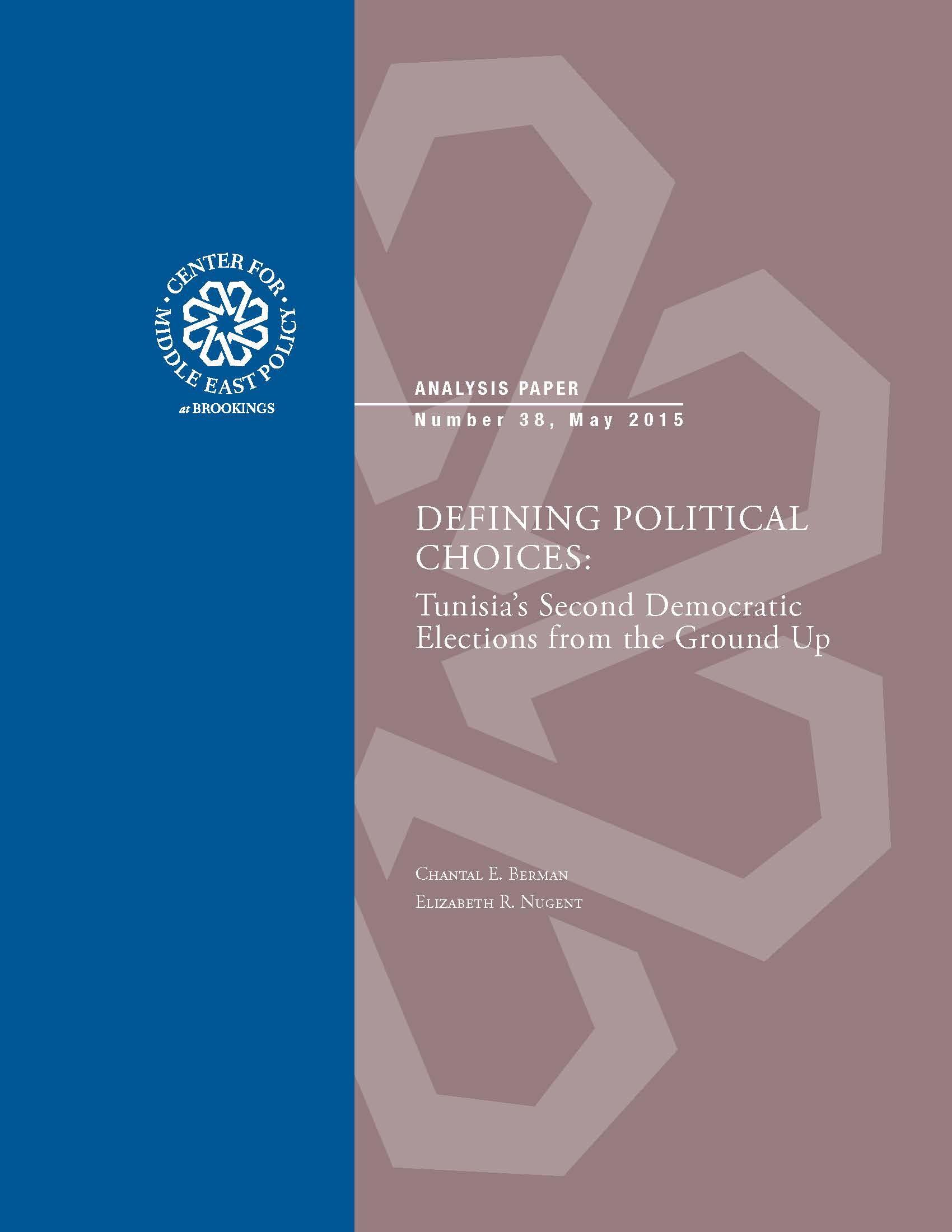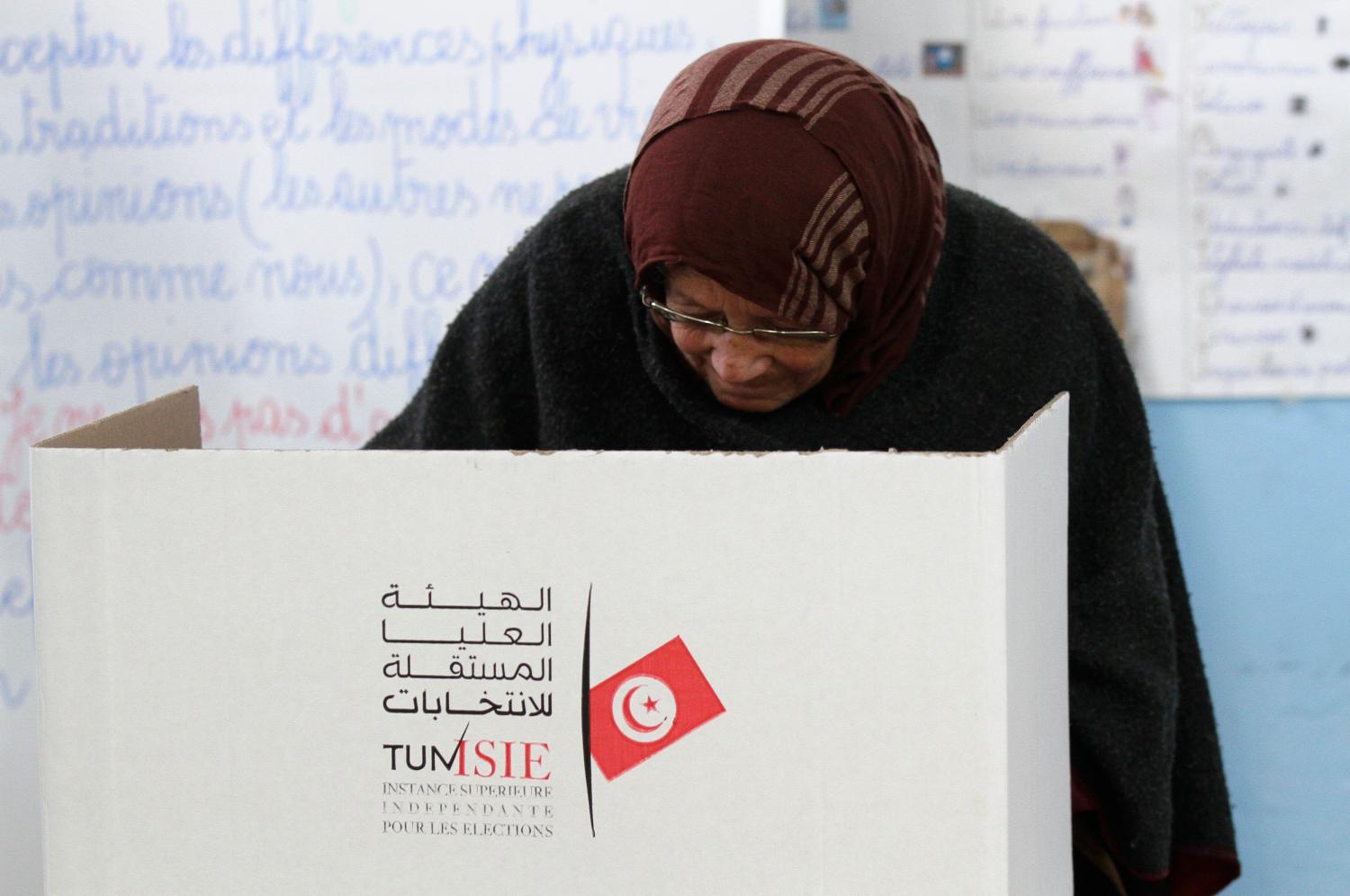 On October 26, 2014, some 3.5 million Tunisians voted in the country’s second parliamentary elections since mass demonstrations in January 2011 prompted former President Zine el Abedine Ben Ali to flee to Saudi Arabia, formally ending more than half a century of single-party rule. Final tallies saw Ennahda, Tunisia’s mainstream Islamist movement, cede its plurality to the Nidaa Tounes, whose leader Beji Caid Essebsi was later elected president in a two-stage run-off election.
On October 26, 2014, some 3.5 million Tunisians voted in the country’s second parliamentary elections since mass demonstrations in January 2011 prompted former President Zine el Abedine Ben Ali to flee to Saudi Arabia, formally ending more than half a century of single-party rule. Final tallies saw Ennahda, Tunisia’s mainstream Islamist movement, cede its plurality to the Nidaa Tounes, whose leader Beji Caid Essebsi was later elected president in a two-stage run-off election.
Though the electoral results showed a majority of ballots cast for two parties, the diversity of electoral options available to voters speaks both to the vibrancy of Tunisia’s political life as well as to the surfeit of social, ideological, and economic divides facing the Arab Spring’s lone “success story.” In this paper, Chantal E. Berman and Elizabeth R. Nugent explore Tunisia’s second elections using unique survey data to focus their inquiry on those political actors that democratization seeks to empower— voters. With challenges ranging from border security to employment, how do Tunisian voters decide how to cast their ballots? And to what extent do the policy programs of Tunisian parties mirror the views and commitments of their constituents?
Highlights include:
- The voters: priorities, turnout, and demographic insights. In an open-ended section at the beginning of the survey, voters were asked to identify the most important issue facing Tunisia at present and during the parliamentary elections of 2011. Concerns over achieving procedural democracy, civic freedoms, and transitional justice issues declined in importance between 2011 and 2014, as did the new Tunisian constitution. Meanwhile, economic growth, development, employment issues, and working conditions ranked among the top priorities identified for 2014.
- Key issues: Religion and politics. Divisions over the role of religion in politics emerged during the drafting of Tunisia’s post-revolutionary constitution, when politicians vigorously debated and ultimately compromised on the question of how Tunisia would balance its Arab Muslim identity with its civil history, and how these issues would be enshrined through the law and cultural reference codified in the constitution. In the exit poll, Tunisian voters appear divided on the issue of religion and politics, though this division is more complicated than what is suggested by media reports and voting returns, which tend to paint Tunisian public debate as a straightforward story of contention between monolithic Islamists and “modern” secularists.
- Key issues: economy, development and social policy. Given the economic stagnation that has gripped Tunisia since the revolution and the persistence of social inequities from decades of imbalanced growth promotion under autocratic rule, it comes as no surprise that voters in the exit survey chose “economic growth and development” as the number one issue facing Tunisia in 2014. Voters for Tunisia’s major parties are more at odds over some social and economic issues than others when it comes to principles of governance and preferences over specific policies.



